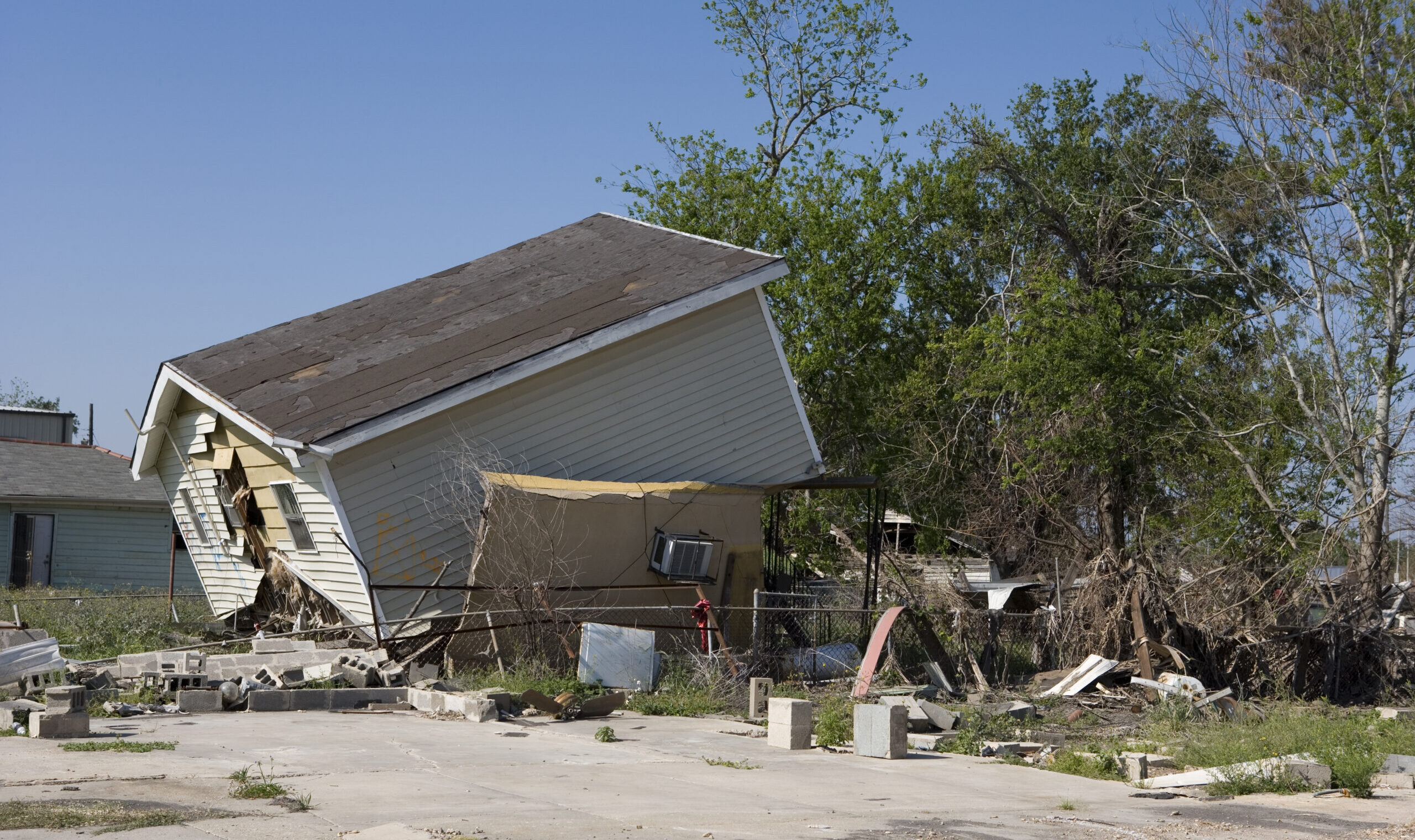“I came in with Halley’s Comet in 1835,” said Mark Twain one year before his death in 1910. “It is coming again next year, and I expect to go out with it… The Almighty has said, no doubt, ‘Now there are these two unaccountable freaks; they came in together, they must go out together.’”
A different sort of natural phenomenon bookended my years as an honorary Louisianan: In October 1985, Hurricane Juan hit Louisiana a few short weeks after my family—my father, my pregnant mother, and me, then age 2½—moved to the state from Ohio. Then, in September 1998, Hurricane Georges rumbled through Louisiana about two months before we were to move back to Ohio. Blessedly, neither resulted in our family suffering damage or even much inconvenience—nor did the many other hurricanes that periodically formed in the skies during the thirteen years between Juan and Georges—but we always considered it fitting that both our arrival and our departure were accompanied by powerful, intimidating storms.
Twain reckoned that God paired him with Halley’s Comet because both were “unaccountable freaks”; I have come to think that the Lord ushered us into Louisiana and out of Louisiana with hurricanes because He wanted to remind us that we were strangers in a strange land. Perhaps the first hurricane was a warning to stay away; maybe the second was an encouragement to hurry up and return to the land of Ohio State football, Jack Nicklaus, and butter cows.
I have no recollection whatsoever of Hurricane Juan, but I vividly remember growing up with the knowledge that hurricane season was something to regard with dread. Maybe this is why I still have no particular affinity for the summer months. I loved living in Louisiana, especially in such close proximity to a city as distinctive, historic, and flat-out bizarre as New Orleans; during my youth, we bounced between two towns on the Northshore—that is, north of Lake Pontchartrain—but we were in the city all the time. Yet during hurricane season, I very much wished we were back in Ohio, a state of which I had no memory and little knowledge. But I knew enough to know that summers in Ohio were not conducted under the threat of hurricanes.
Of course, I neglected the fact that other terrible natural disasters—tornados, floods, lightning strikes—happen in states not generally susceptible to hurricanes. Even so, I remember well the peculiar menace of a named storm system whose ominously rotating movement could be so easily visualized on a weatherman’s radar screen. I remember wincing at the formation of each new tropical depression in the Atlantic, and I remember being genuinely—and rightly—fearful on those occasions when one entered what was then known as the Gulf of Mexico. For me, to live under the threat of hurricanes was to reckon, at an early age, with the possibility of losing property, possessions, and even life and limb.
By the grace of God, it never came to that. The worst storm I remember experiencing was Hurricane Andrew in August 1992, but, despite the damage it did throughout Florida and Louisiana, we got through it OK. By the time of Hurricane Georges, I was 15 and had either become acclimated to the annual danger or was affecting adolescent indifference: In the run-up to Georges making landfall in our state, my father was battening down the hatches at home—I remember him affixing long strips of duct tape to the windows, and managing numerous bags of sand in the driveway—while I went to the movies. (Just before the hurricane hit, I took my mother with me to see John Frankenheimer’s Ronin, a top-notch action movie starring Robert De Niro. In my memory, there was no one else in the theater, but I sure did love the car chases.) My indifference was vindicated when, once again, we were spared anything more serious than a few days without power.
My family had been back in Ohio for seven years when Hurricane Katrina ravaged New Orleans in August 2005—some 20 years ago this weekend. We watched what unfolded on TV with horror, and we watched President George Bush’s lumbering, insufficient response with bewilderment. Yet, even accounting for the passage of time and the distance between the Crescent City and the Buckeye State, we still felt connected to the place: We had walked those streets, we had gone to the Superdome, we had feared, more than once, what might happen with such a hurricane, even on the Northshore. And we still had many friends down there.
Some years after Katrina, my father tried to find a picture online of our beautiful, beloved last house in Louisiana—the one we had lived in during Georges, the one that my mother had poured her energies into furnishing and decorating—and he apparently found one on an early version of Google Street View or some similar internet technology. When he reported to my mother that our house, as near as he could see, looked OK after the hurricane, she breathed a sigh of relief. We were not in Louisiana, but we still were of it, and we—or, rather, our one-time house in that exceptional state—had escaped once more.
The post Hurricane Season appeared first on The American Conservative.

